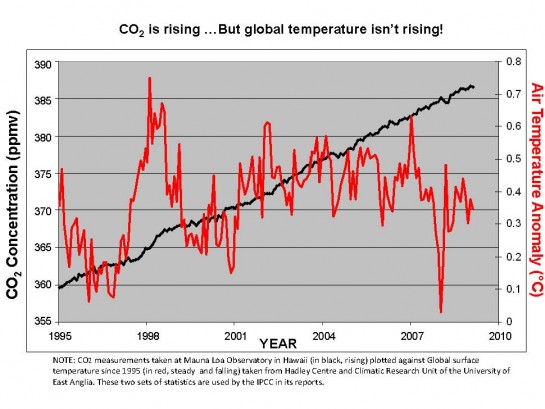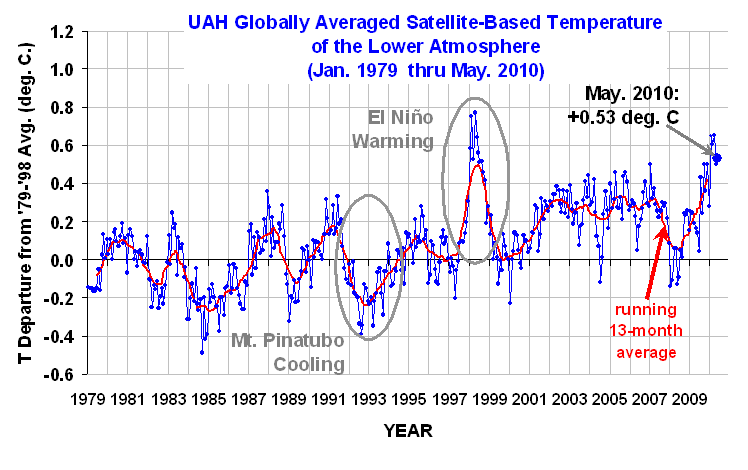If there is any chance at all that humans are harming the environment with our CO2 emissions, shouldn't we try to curb them? Especially since the impacts of not doing so are pretty much irreversible.
Well let's not get carried away here. No matter how much CO2 we dump in the atmosphere, all effects will completely subside within a few hundred years. They might not be reversible in the time window we care about, though.
I would take ANY reports of extreme conclusion in an area of science that is politically sensitive with much salt. As far as climate change goes, when we can't even get anatomical science right, how the fuck are we supposed to get something as huge and complicated and sensitive and difficult to model as the entire planet?
I agree that alarmist reports are to take with a grain of salt, but most scientists don't write such reports. As for your argument from incredulity, it's oddly reminiscent of, and just as fallacious as creationist arguments about evolution. Unless you are a climate scientist, you are in no position to judge the difficulty of modeling a planet's climate. For one, climate is easier to model than weather.
Unless we are in a cooling trend, then I'd suggest you wouldn't want Canada under mile thick ice. Some of you might, though.
Oh, quit it about your cooling trend. No models predict a cooling trend, and the null hypothesis is that there is no trend. You're making a case out of a fringe hypothesis.
So, yes, sure, by curbing emissions we might fail to incidentally compensate for a trend that nobody is predicting. Hey, newsflash: if we can make a bad cooling trend okay, then we can make a neutral trend bad, and a bad warming trend terrible. When hedging our bets, we don't consider the fringe case where what we're doing might help, we consider the likely case where what we're doing might hurt.
If you want to argue that we should do nothing, then show that the expected impact of doing something is bad enough that the expected benefits of slowing down our emissions do not quite compensate. This "cooling trend" argument is as bad as arguing that we should keep playing slots because maybe we'll win the next game.
predicting things that have already happened with a high confidence value is pretty unremarkable. In fact, predicting what has already happened without perfection is rather pathetic.
Oh my god do you even know how this works? Do you have any idea how models are devised and how they are tested? I'll make it super simple for you: you have 100 years of data. You take the first 50 years, and you
put the remaining 50 aside. You devise the best possible model with the first 50 years, one that is as accurate as possible for that time span. Then, once you have done this, you try to predict the 50 years you left aside, hidden from view while you were modeling, so that you could
test. And if you're doing great at predicting these 50 years, which, I remind you, you
did not have while modeling, it makes sense to think you'll do great for the 50 years after that, doesn't it?
I mean, it's simple, really: you imagine you're in 1950, you elaborate your models, and you see how well you'd have done in the "future", which is the data you had to leave out while pretending to be in 1950. Did you really never realize you could do that? :(
@FlareBlitz: just one small thing: when modeling anything, it's fairly important to leave out a slice of data
completely in such a way that no modeling at all is conditioned on it. That's because technically, if you build a model to predict 1980 to now from 1900-1980, optimize it until you get 99% accuracy, you are unwittingly conditioning your model on the whole dataset (you are overfitting). Thus it is better to focus on predicting 1980-2000, so that you can check, at the very end of the process, how well the best model fares on, say, 2000-2010. That way, you'll get a much less biased account of your model's performance. I don't know if researchers in climate science do it, because it is tempting not to, but they should.


















